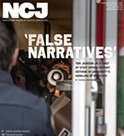Friday, April 18, 2008
Burgers for Earth Day?
Posted By Bob Doran @bobbobbob on Fri, Apr 18, 2008 at 4:35 PM

This just in:
FOR IMMEDIATE RELEASE:
KSLG's afternoon radio personality, Dr. Syd wants to buy you breakfast on Earth Day, Tuesday, April 22 from 7:30 to 9:30 a.m. at the northern Eureka Burger King. The catch is that Dr. Syd will only buy you breakfast if you carpool, "The importance of carpooling is finally being realized by many people now that gas has hit $4 a gallon." Dr. Syd says.
KSLG wants to encourage Humboldt citizens to be environmentally conscience not just on Earth Day, but every day. Dr. Syd wants people to realize, "its also important to cut down emissions so on that note this coming Tuesday, Earth day we will be rewarding carpoolers with free breakfast from Burger King and KSLG."
While we'll have to agree that car-pooling is a good idea, bringing people to a fast food joint for Earth Day seems a bit, well, weird. Not that Burger King is a prime offender in the world of meat -- they actually made history lat year when they
vowed to stop using pork and eggs from supliers who confine their animals
in cages or crates -- but fast food and meat consumption in general are not exactly Earth-friendly.
Here's some stats from a recent
New York Times
story, "
Rethinking the Meat Guzzler
."
Americans eat about the same amount of meat as we have for some time, about eight ounces a day, roughly twice the global average. At about 5 percent of the world’s population, we "process" (that is, grow and kill) nearly 10 billion animals a year, more than 15 percent of the world’s total.
Growing meat (it’s hard to use the word "raising" when applied to animals in factory farms) uses so many resources that it’s a challenge to enumerate them all. But consider: an estimated 30 percent of the earth’s ice-free land is directly or indirectly involved in livestock production, according to the United Nation’s Food and Agriculture Organization, which also estimates that livestock production generates nearly a fifth of the world’s greenhouse gases — more than transportation.
To put the energy-using demand of meat production into easy-to-understand terms, Gidon Eshel, a geophysicist at the Bard Center, and Pamela A. Martin, an assistant professor of geophysics at the
University of Chicago
, calculated that if Americans were to reduce meat consumption by just 20 percent it would be as if we all switched from a standard sedan — a Camry, say — to the ultra-efficient Prius. Similarly, a study last year by the National Institute of Livestock and Grassland Science in Japan estimated that 2.2 pounds of beef is responsible for the equivalent amount of carbon dioxide emitted by the average European car every 155 miles, and burns enough energy to light a 100-watt bulb for nearly 20 days.
photo courtesy of Moe, borrowed from
Moe's Flickr Photostream
Speaking of Environment
Comments (15)
Showing 1-15 of 15
Readers also liked…
more from the author
-
Around Humboldt County
- Sep 3, 2014
-
Around Humboldt County
- Aug 27, 2014
-
Around Humboldt County
- Aug 20, 2014
- More »



































